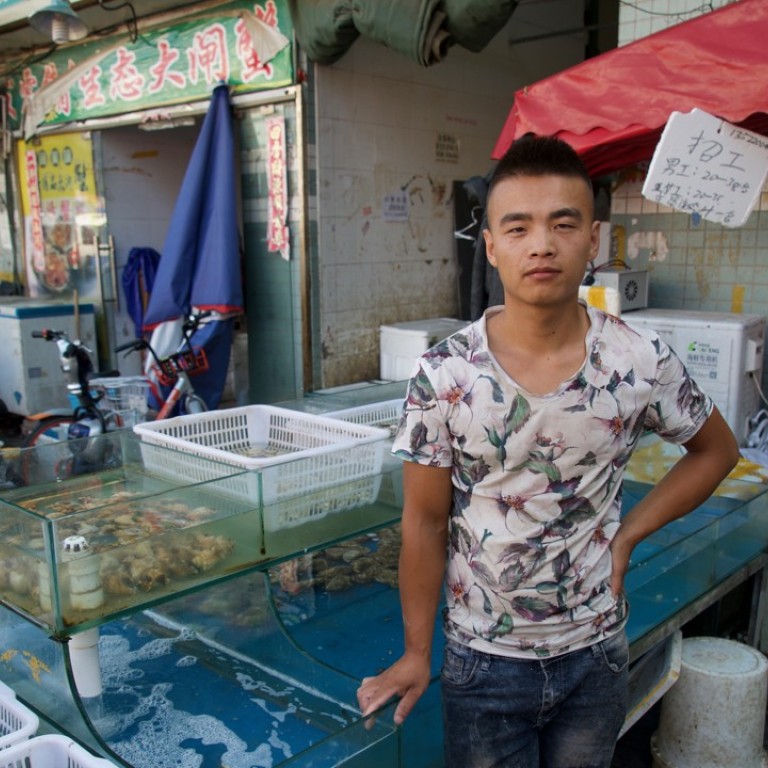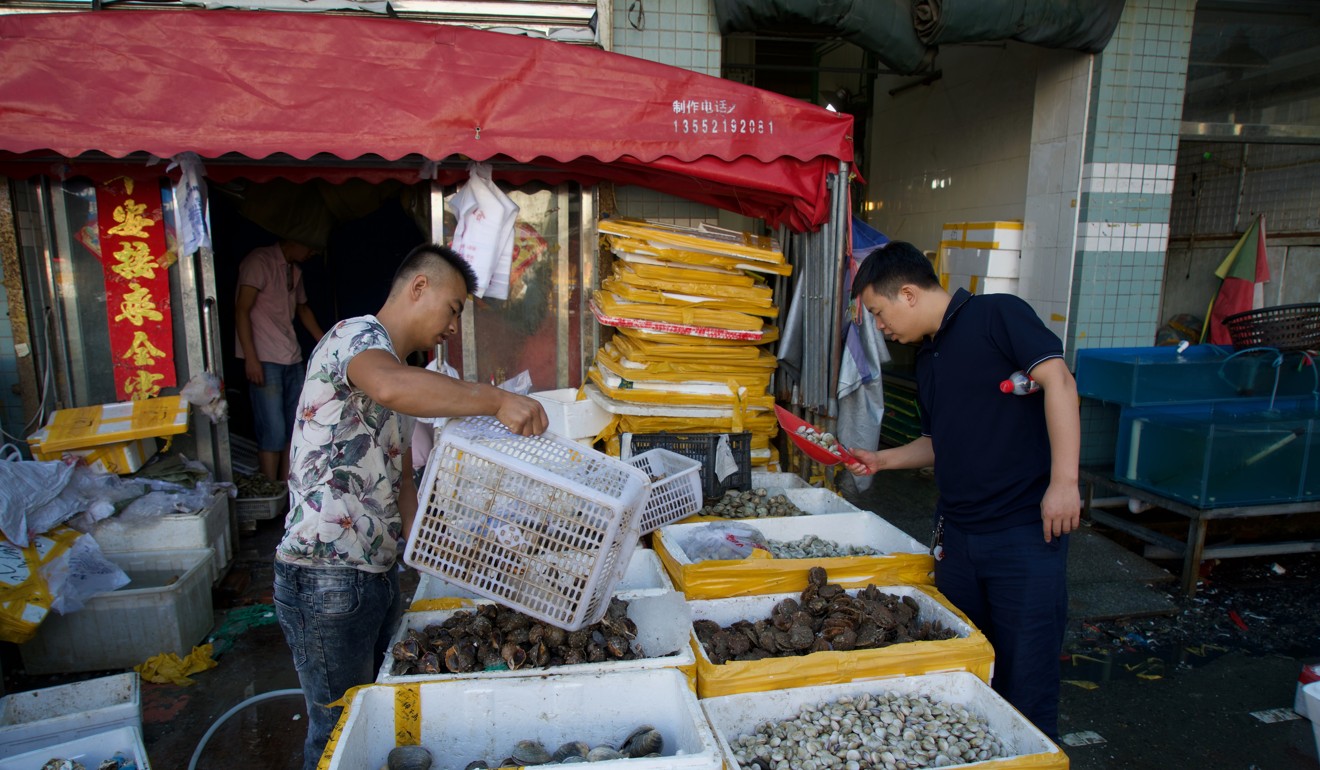
Chinese seafood traders under pressure as UN sanctions bite
Some say they were caught off guard by the ban on North Korean seafood, which is a popular choice in China
Chinese seafood traders are among the first to feel the sting from new international sanctions imposed on North Korea over its latest missile tests.
Some said they were caught off guard by the ban on North Korean seafood that took effect on Tuesday, when delivery trucks trying to cross the border were sent back – meaning traders had to source local, cheaper products for their clients instead.
China’s Ministry of Commerce has banned imports of seafood, iron and iron ore from its neighbour to comply with the latest United Nations Security Council sanctions on North Korea.
By stopping seafood exports to China, it has cut off a revenue stream that generated US$190 million for Pyongyang last year.
Feng Yalong, a seafood vendor in Beijing, said he used to sell 1,500kg of North Korean shellfish a day, mostly to restaurants in the capital and neighbouring Hebei province. Now, very little seafood was arriving from over the border.
He said shellfish from the North usually cost 20 yuan more per kilogram than local shellfish.
“Today we only had 250kg,” Feng said. “Our clients have to buy local shellfish instead. Every morning we have many people asking for North Korean shellfish, but all we can tell them is that we don’t have enough.”

The preference for seafood from over the border is a relatively recent trend. Demand began to grow two years ago, when Chinese started developing a taste for North Korean seafood that is considered bigger and fresher tasting than that available locally.
“It’s because there’s no pollution there and you don’t even have to clean the seafood before you cook it,” Feng said.
The ban has hit traders in the border city of Huichun, in northeastern Jilin province, especially hard.
One trader, identified as Zhang, told the South China Morning Post that it came out of the blue, and they only heard about it hours before it came into effect on Tuesday.
The commerce ministry has said that cargo which was already on its way to China would be cleared by customs before the UN sanctions deadline of September 5.
Zhang said he was worried about what would happen to the refrigeration storage he had built in North Korea at a cost of 1.5 million yuan (US$224,150).
“We had heard that all seafood imports from North Korea would be suspended on September 5. But on Monday afternoon we were suddenly told that the ban would take effect the next day. Now it seems we don’t have any other options,” he said.

Zhang’s seafood had been sent back to North Korea since Tuesday, but he said 30 trucks on their way to deliver fresh or frozen seafood to other Chinese traders were stuck on a bridge connecting the city with the bordering North Hamygong province.
“I’m the lucky one here, but who knows what will happen to those with trucks stuck on the bridge,” Zhang said. “This has never happened before.”
The UN Security Council imposed the latest sanctions on North Korea on August 6 in response to two intercontinental ballistic missile tests – which it claimed could reach the US Pacific territory of Guam – last month. The sanctions could choke off more than a third of the regime’s US$3 billion in annual export revenue.
The Chinese authorities moved faster than expected to introduce the ban, a move analysts said reflected Beijing’s desire to de-escalate tensions on the Korean peninsula.
In a regional summit in Manila last week, Chinese foreign minister Wang Yi said Beijing was willing to “pay the price for the implementation of [the sanctions]” given its economic ties with the North.

